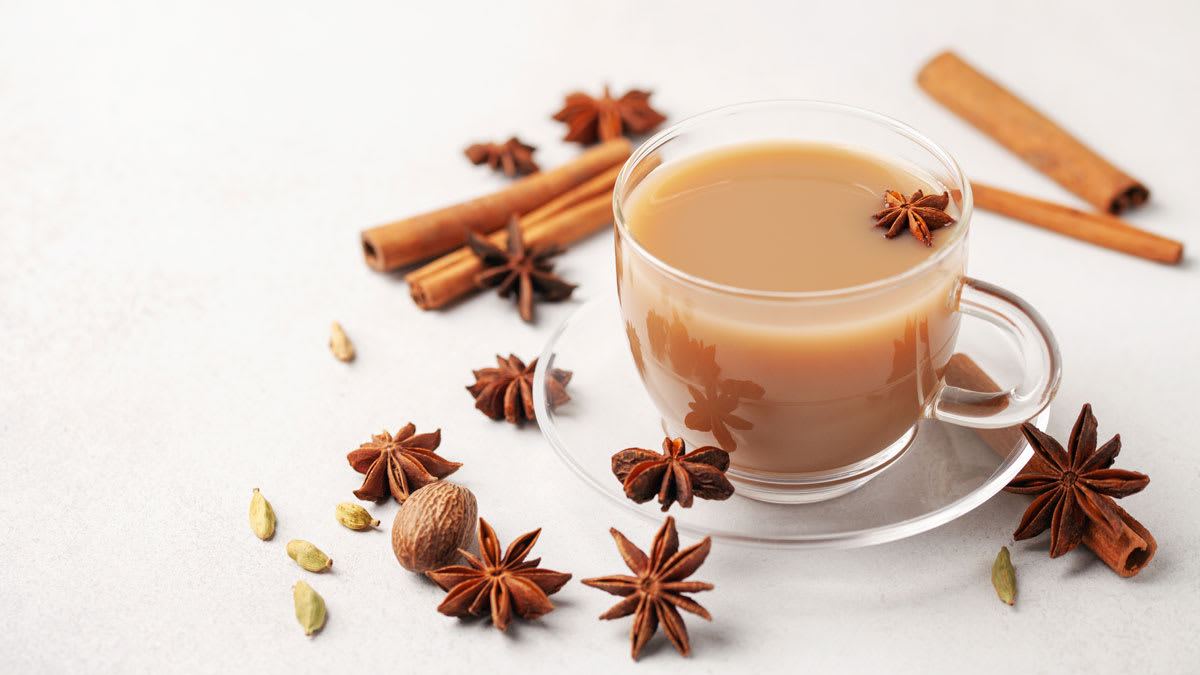The building blocks of masala chai have some pretty solid health benefits.
Black tea is rich in powerful health-promoting antioxidants called polyphenols, says Shailee Saran Varanasi, MS, RDN, an adjunct health and nutrition instructor at Logan University in Chesterfield, Mo. These compounds have been linked to a reduced risk of health problems, such as heart disease and type 2 diabetes. Sipping black tea can help you feel alert with less jitteriness than java. In addition to being lower in caffeine than coffee, black tea contains a compound called l-theanine, which balances the impact of caffeine. (You can also use decaf black tea to make masala chai.)
Spices vary depending on who’s doing the brewing, but black pepper, cardamom, cinnamon, cloves, ginger, and star anise are some of the ones most used in masala chai. Spices can be a good source of antioxidants. When scientists ranked the antioxidant levels in more than 3,000 foods, they found that several herbs and spices—such as allspice, cinnamon, cloves, and peppermint—came out on top. Some spices may have other health benefits, Varanasi says. For instance, cardamom may help with digestion, while cloves may have antimicrobial properties.
Milk adds protein and calcium. (In India, water buffalo milk is often used, but because that’s not generally available in the U.S., cow’s milk, usually whole milk, is standard.) While the teaspoon or two you’d add to a regular cup of tea wouldn’t have much of these nutrients, in chai you could be drinking one-quarter to one-half cup. That amount of whole milk provides 2 to 4 grams of protein and 78 to 155 mg of calcium, as much as 15 percent of the Daily Value (1,000 mg).
Sweetener is standard. But you don’t need to add much. You can use sugar, agave, honey, or jaggery (an unrefined sugar popular in India, it’s similar to raw cane sugar). Just keep the American Heart Association’s recommendations for added sugars in mind; no more than 25 grams per day for women and no more than 36 grams for men. Sugar substitutes are an option, but they may not be much better for you than sugar. Some research has linked them to an increased risk of certain cancers, heart disease, diabetes, and more.
Source link
